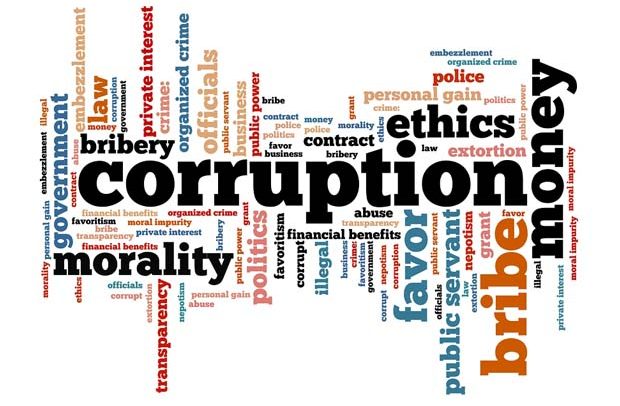The latest Corruption Perception Index released by Transparency International shows that Ghana has failed to make progress for the third consecutive year in its fight against corruption.
According to the report released today Tuesday January 31, between 2020 and 2022, Ghana maintained its score of 43, which is still below the average, with countries scoring higher viewed as less corrupt and those with the least scores being more corrupt.
“Ghana for the 3rd consecutive year, scores 43 out of a possible clean score of 100 and ranks 72 out of 180
countries and territories included in the 2022 Corruption Perceptions Index (CPI) released today by Transparency International (TI). This score, reflects a lack of progress in the country’s fight against corruption,” a statement by CPI said.
The CPI believes that addressing the problem of corruption is critical now more than ever as corruption is a major contributor to the country’s current economic woes as evinced by several reports including that of the Auditor
General’s report on Government of Ghana’s COVID-19 expenditure.
This year’s index focuses on corruption, conflict and security.
According to Delia Ferreira Rubio, Chair of Transparency International:
“Corruption has made our world a more dangerous place. As governments have collectively failed to make progress against it, they fuel the current rise in violence and conflict – and endanger people everywhere. The only way out is for states to do the hard work, rooting out corruption at all levels to
ensure governments work for all people, not just an elite few.”
Ghana’s Performance vis-a-vis other Sub-Saharan African (SSA) Countries
In Sub-Saharan Africa, the 2022 CPI shows a dire situation as most countries including Ghana have failed to make progress in reducing corruption.
Per the latest report, the top performers in the region are Seychelles (70), followed by Cabo Verde (60), Botswana (60) and Rwanda (51), whereas Burundi (17), Equatorial Guinea (17), South Sudan (13) and Somalia (12) have the
lowest scores.
Ghana with a score of 43, ranked 8 out of 49 countries in Sub Sahara Africa which were included in the index,
alongside Benin (43), Senegal (43) and South Africa (43).
Though Ghana’s score is classified as low, it is still above the Sub-Saharan Africa average of 33.
The report was of the view that the misuse, embezzlement or theft of public funds can deprive the very institutions of resources they need to fulfil their mandate which include protecting citizens, enforcing the rule of law and safeguarding peace.
In Ghana, GII says that corruption continues to negatively affect citizens trust in government and institutions, hinders the provision of essential services, impedes economic development and creates vulnerabilities that have the tendency of being exploited by extremists. Corruption if not addressed has a potential to lead to social unrest and conflict.
As such, it is essential that, steps are taken to combat corruption in order to ensure a more peaceful and secure society.
To address the problem of corruption in Ghana, GII recommends the following that relevant state agencies must address security vulnerabilities and protect the country against external
threats.
“This should include measures such as strengthening the defence sector, increasing intelligence and security capabilities, and control the perceived politicisation of
enlistment/employment.
“Strengthening the professionalism of the defence sector and improve border security to counter smuggling, illicit trade and potential terrorist activities.”
It also said Government must promote economic development and reduce barriers to investment. This includes
the implementation of effective monetary and fiscal policies and the creation of a transparent environment in the public and private sectors where corrupt practices are easily identified and addressed more effectively.
It further asked the Executive arm of government to urgently take steps to lay the Conduct of Public Officers’ Bill in Parliament while we call on the Legislature to attach equal level of urgency to its timely passage.
“Parliament should ensure implementation of recommendations contained in the Auditor General’s report by referring it to the Attorney General to recover lost funds and prosecute persons found culpable to have engaged in fraud, misapplication or embezzlement of state resources.
“The Auditor General must exercise its powers of disallowance and surcharge per Article 187 (7) of the 1992 Constitution to recover misappropriated funds and prevent the reoccurrence of wastage in the public sector
“Government should as a matter of urgency ensure that the Office of the Special Prosecutor (OSP) is adequately resourced to enable the office effectively perform its mandate of prevention, prosecution and recovery of proceeds of corruption and corruption related offences.”
By Vincent Kubi


